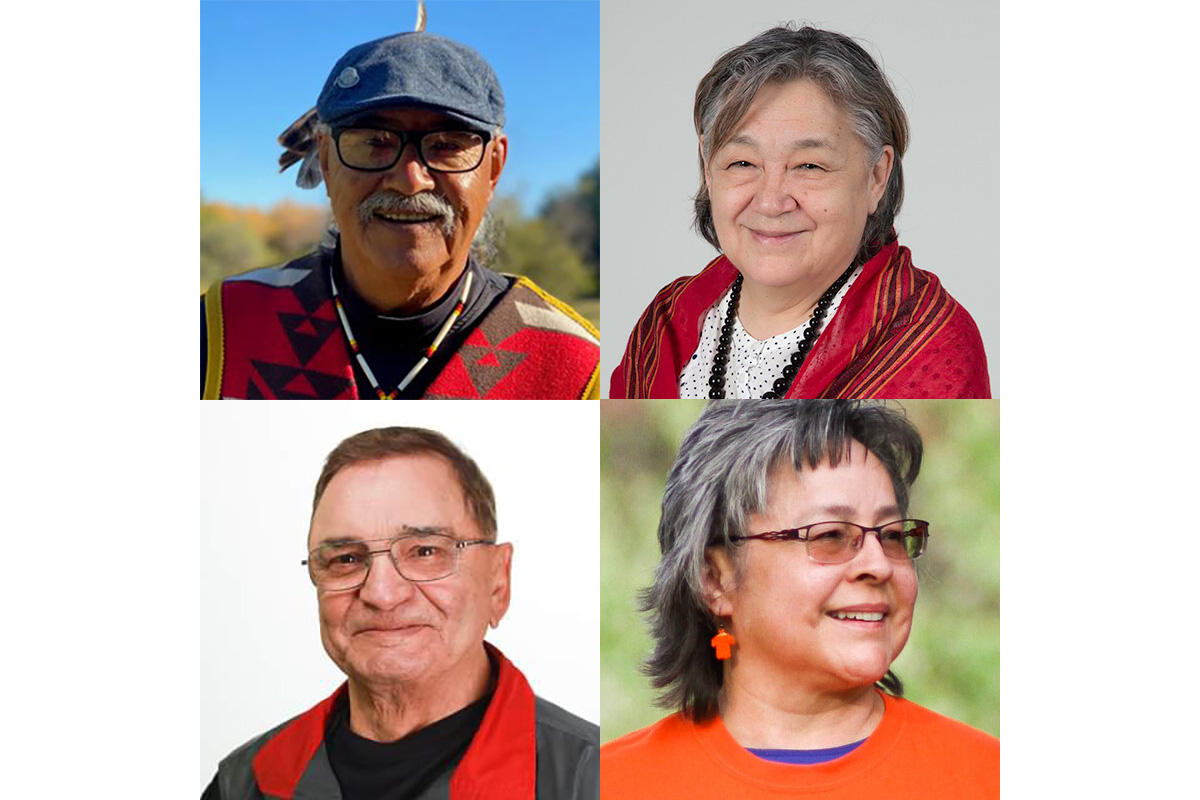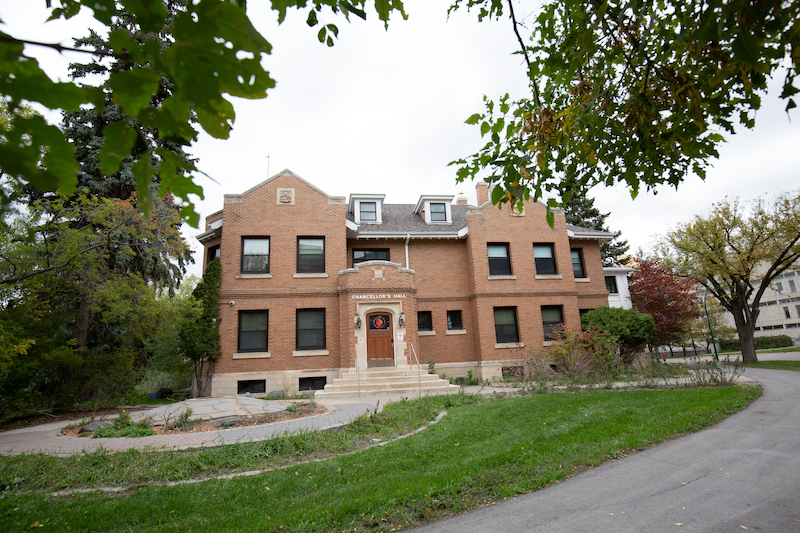
Top L-R: Eugene Arcand, Levinia Brown. Bottom L-R: Jimmy Durocher, Phyllis Webstad.
Residential school Survivors speak of impact of National Centre for Truth and Reconciliation on this somber anniversary
Outpouring of donor support for the ongoing work done by the NCTR continues to aid the community
One year ago, the devastating discovery of the remains of 215 unmarked graves at the former Kamloops Indian residential school in Tk’emlúps te Secwépemc, British Columbia shocked the country and the world. Unearthing this tragedy called attention to Canada’s dark history and the need for immediate change. As the feeling of heartbreak swept the nation, people looked for an outlet to support the Indigenous community, which resulted in an outpouring of support both nationally and internationally to the National Centre for Truth and Reconciliation (NCTR).
These discoveries in Kamloops were a pivotal moment in our collective conscience that acted as a catalyst for education, community support and further discoveries. There has been a major mobilization through the centre, thanks in part to the generous support of donors and the community. This has resulted in more than $1.2 million donated to the NCTR over the past year.

National Centre for Truth and Reconciliation (NCTR)
For Phyllis Webstad, a Survivor of St. Joseph’s Mission residential school in Northern Secwpemc (Shuswap) from the Stswecem’c Xgat’tem First Nation (Canoe Creek Indian Band) BC, that impact comes in the form of record keeping.
“As a newly six-year-old, when I attended the residential school, my memories were spotty and it was good to have my records to be able to make sense of those memories and to give me some more peace of mind and a little bit of healing as well,” explains Webstad, the Executive Director of the Orange Shirt Society.
The Honourable Levinia Brown, first female Mayor of Rankin Inlet, NT and Inuit Survivor of the Chesterfield Inlet residential school, feels the impact of the NCTR through the support it gave her and other Survivors to travel across Canada hearing and sharing experiences of those who also attended residential schools. She says of this experience, “… because the NCTR was born, we were able to travel, and with the support of the organization, the events were attended by so many Survivors and others who wanted to hear the stories in three different provinces.”
Jimmy Durocher, a Survivor of the Île-à-la-Crosse boarding school in Saskatchewan says, “NCTR is building a foundation for reconciliation by promoting public education and understanding.” He goes on to explain why this is crucial to the future. “People need to understand exactly what happened with our residential school Survivors, those that are with us and those that are no longer with us as well, because that is the truth, and we need to stick to that as closely as we possibly can,” says Durocher, the President of the Métis Local in Île-à-la-Crosse.
Eugene Arcand, a Cree Survivor of St. Michael’s Indian residential school and the Lebret student residence, both in Saskatchewan, expresses gratitude for the NCTR and the work they are doing in the country. “The NCTR is an integral part of achieving the recommendations of the Truth and Reconciliation Committee, which is why it is so important that it continues to be supported. NCTR is the only physical legacy that’s left over from the work of the Truth and Reconciliation Commission,” says Arcand, a past chair of the Governing Circle.
Arcand finishes with a message for all of Canada that can never be forgotten: “Thank you to the 215 that woke up the world to the true history of this country as it relates to Indigenous people.”
As the potential for more remains to be found is high and the absolute necessity for community supports around healing continue, the importance of the NCTR remains a top priority. Donors supporting NCTR will help ensure that the Centre can continue to pave the path towards Truth and Reconciliation for communities across Canada. If you wish to support this essential work, you can donate here.
You—our generous UM community—keep showing us how inspiration changes everything.
Whether you are supporting health as a human right, advancing reconciliation and promoting Indigenous achievement, climate change research, or transforming the learning experience, you are making the world a better place.
Read more in our Gratitude Report





